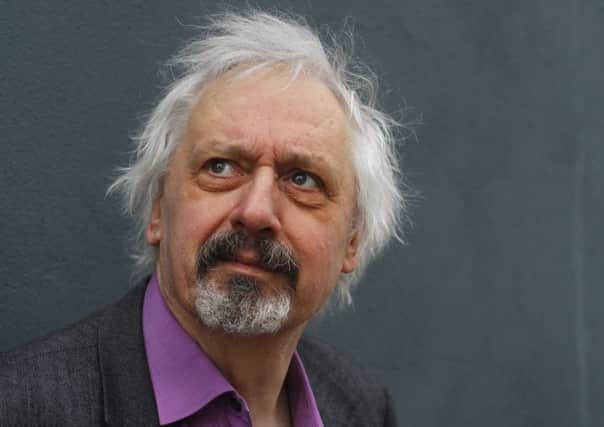Free Fringe saved pioneer spirit of festival, says creator


Peter Buckley Hill, who introduced the model to the Edinburgh Festival Fringe more than 20 years ago, claims it would have become dominated by expensive, safe shows staged before middle-class crowds.
Writing in a new memoir which charts the Free Fringe’s evolution to become one of the festival’s biggest players, the veteran stand-up claims the cost of tickets and putting on shows has been pegged back by its popularity. Nearly 700 free shows are in the 2018 Fringe programme, around a fifth of the overall tally.
Advertisement
Hide AdHowever the book, Freeing The Edinburgh Fringe, claims the event is suffering from a “level playing field myth” and suggests it is at risk of becoming “moribund” due to the pursuit of profits by some venues and promoters.
Buckley Hill, who suggests he “saved” the Fringe, writes: “Until we came along, venues were in the hands of for-profit organisations, as many still are. To get a venue, the performer had to pay through the nose. Performers left Edinburgh considerably in debt. Thousands, if not tens of thousands, of pounds.
“But the Free Fringe is a non-profit organisation. We don’t charge performers. That’s the difference. And that, I humbly suggest, is why this story is important.
“Pay-to-play systems deny many non-wealthy people the right to pursue their dreams. But worse than that – they don’t stop having those dreams. Many will go into debt to back their dreams. And the money they borrow goes into somebody else’s pocket. We’ve fought against that. We’re still fighting.”
Buckley Hill’s book recalls how the Free Fringe started life with a single show in 1996 at the Footlights and Firkin pub, but has provided venues for performers like John Kearns and Richard Gadd when they have won the main Edinburgh Comedy Award.
Buckley Hill said: “We can’t know what would have happened in alternate universes. But let me take a stab at it. If there had been no Free Fringe, the price of ticketed shows would have risen steadily. The rents paid by promoters would have risen, and so would the costs of hiring PA and rigging venues, plus the wages of box office and stewarding staff. That would have been passed on in ticket prices.
Advertisement
Hide Ad“The stream of performers willing to back their dreams by paying ever-increasing venue rentals would eventually have dried up. The supply of audience members willing and able to pay increasing ticket prices, several times a day, would also have gradually dried up, particularly in the economic times we’ve seen in the last decade.
“The higher the ticket price, the more the Fringe falls out of the price range of lower income groups. Only the moneyed middle-class are left. And even they want value for their money. If you’re going to pay, say, £20 for a one-hour show, however rich you are, you want to know it will be worth the money.
Advertisement
Hide Ad“So, they’ll only go to see safe shows by already established names. And even they won’t do experimental material and risk the disapproval of the audience. The others would eventually realise they couldn’t win in that environment and stop coming,” said Buckley Hill.
“You end up with a smaller number of expensive, safe shows, which the audience could probably see in their home towns anyway. Still plenty of scope to have a good time in a wonderful city, but nothing unique any more. And whatever survived might have still been called a Fringe, but wouldn’t be a Fringe.”